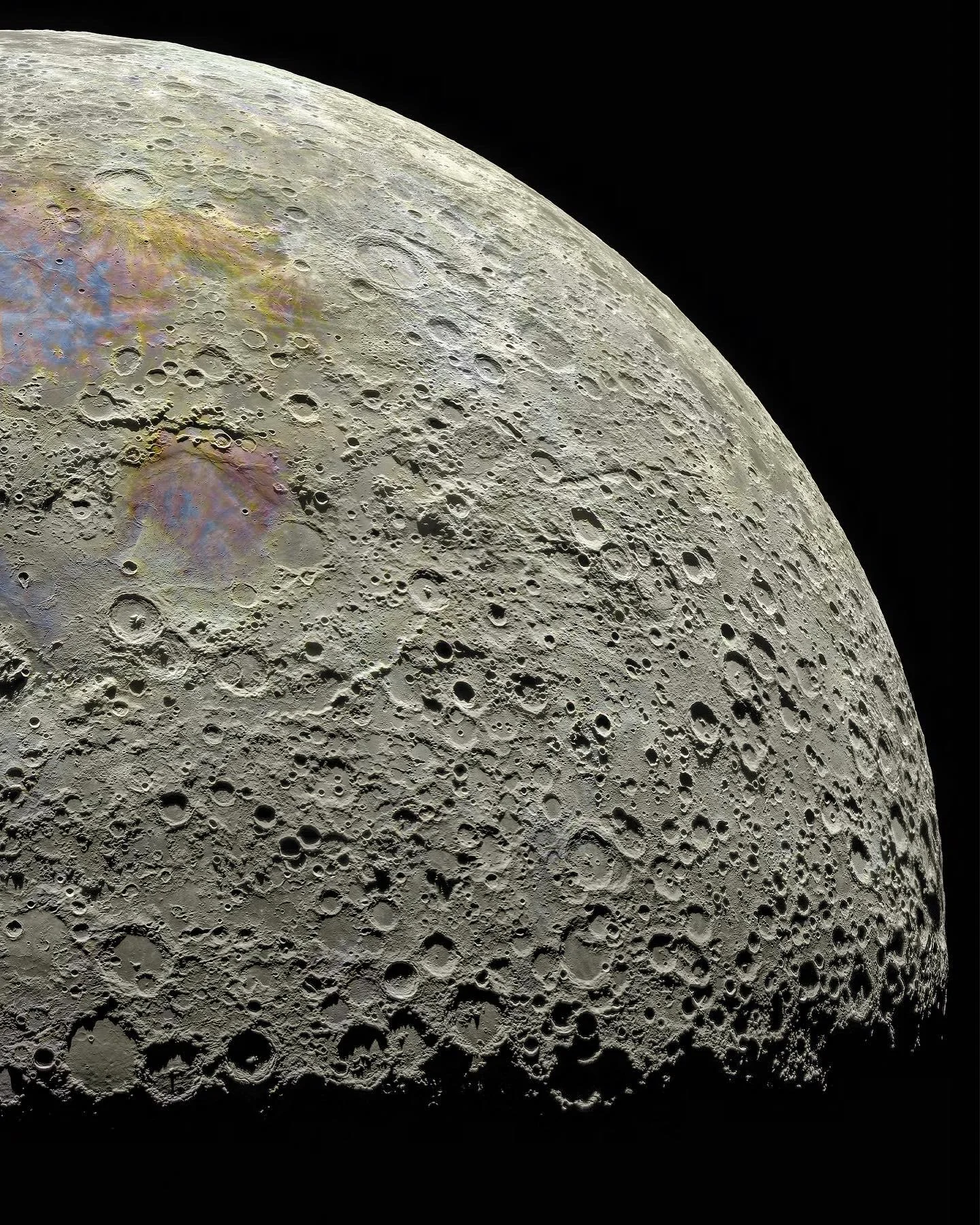From the other place: https://www.reddit.com/r/space/comments/1dmibwd/this_is_my_most_advance_moon_photograph_ever_it/
Pics too good to miss. :)


From the other place: https://www.reddit.com/r/space/comments/1dmibwd/this_is_my_most_advance_moon_photograph_ever_it/
Pics too good to miss. :)


Irrespective of the crater size, depth looks consistent. Does anyone know why that is?
Multiple reasons:
Higher speed impacts penetrate deep, but also cause the rock to melt. This fills in deeper craters, limiting the max depth a crater can be. There are still very deep huge craters, but these look more like big depressions than craters, because of how big they are. They are also themselves covered with craters usually, making their size and shape harder to see.
Because the diameter of the moon is 3474km, a difference of several kilometers would only amount to a fraction of a percent. So even though one crater is for example 10km deeper than another, relative to the size of the moon this is practically nothing. When viewing pics like these where the whole moon is visible, this matters.
The moon is a very uniform gray color and lacks the indicators our brain use to gauge depth. This makes it very hard to guess how deep the different craters are. You can see some craters have more shadows where others don’t, but they are also different shapes and sizes and the lighting is different so it’s hard to see.
There is also probably some part of the speeds of incoming stuff being within a certain range and the moonrocks being relatively uniform in materials, so the range of craters than can exists is probably limited. But I’m not certain how big of an factor this is and what the range is.
I’m hoping there are missions to go in close, get a better look.
There are plenty of missions right now. China has landed a rover on the moon this month. And multiple countries have satellites in orbit around the moon. Nasa has their Lunar Reconnaissance Orbiter which takes very high resolution images of the moon all the time and these are publiced on their website.
The conspiracy about the moon is that under a thin layer of dust… it’s really all metal. /shrug